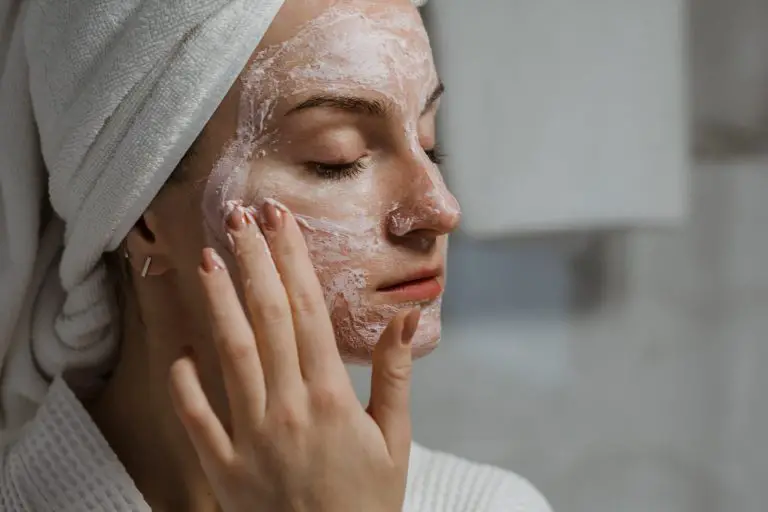Uneven skin tone, acne scars, freckles, and dark spots are some of the biggest culprits that keep you from having lighter, cleaner, and more glowing skin. Interestingly, beauty has been associated with lighter skin tone since ancient times.
Japanese women from the Nara Period (710 to 794) used to cover their faces with Oshiroi (white powder) for a fair complexion. Now we have countless products and methods that can be used for skin-lightening purposes, thanks to advancements in medical science.
Let’s discuss some of the best tips that you can use to make your skin lighter.
What Darkens Your Skin?
Melanin, a natural skin pigment, is the biggest reason behind most pigmentation issues. For example, melasma and sunspots occur because melanin gets deposited in excess amounts in the inner layer of the skin called the dermis.
Targeting melanin production is the best way to resolve such pigmentation issues to lighten your skin. That’s why most skin-lightening remedies and products aim to prevent or reduce the production of melanin.
How to Make Your Skin Lighter?
1. Exfoliate Regularly
Exfoliating your skin regularly is one of the best ways to get rid of dead skin cells and lighten your skin tone. You can use both chemical and physical exfoliators for this purpose.
The chemical exfoliators or peels can penetrate deeper into the inner layer of your skin to address even the most stubborn types of blemishes.
On the other hand, the physical exfoliators address your skin’s uppermost layer to get rid of dead cells, and they can also target discolouration issues.
2. Protect Your Skin from Environmental Pollution
Environmental pollution is increasing continuously, and that’s why we have anti-pollution skincare products. People who live in urban areas expose their skins to many types of pollutants such as chemicals, radiation, and smog unknowingly and knowingly.
These pollutants generate free radicals that not only increase the production of melanin but also increase the rate of premature skin aging. According to a scientific study conducted by the TFH Berlin University of Applied Sciences, melanin works as a defensive layer against pollutants.
So, the techniques to reduce its production in such a situation are not an optimal solution. You need to choose the right products that provide you with a barrier against environmental pollutants.
3. Using Skin-Lightening Products Routinely

Incorporating skin-lightening products in your skincare routine is yet another great way to lighten your skin. Make sure that you choose the skin-lightening product that contains any of the following ingredients:
Niacinamide
Procter & Gamble Far East’s Research and Development Department Japan study shows that niacinamide is a scientifically proven skin lightening agent. Using a product that contains this ingredient will help make your skin lighter.
Mulberry
Mulberry contains polyphenols, and according to the Zhejiang University study, it’s a natural skin lightener.
Lactic Acid
According to a study, lactic acid is a safe skin lightener that improves melasma significantly. However, the study also explains that it takes a bit longer (at least 3 months) than other ingredients to show results.
Kojic Acid
According to the expert panel of CIR (Cosmetic Ingredient Review), kojic acid can work as a depigmentation agent, but only 2 percent (or less) is safe to use.
Bergamot
Bergamot comes with antioxidative and anti-inflammatory properties, according to the Journal of Food Science and Nutrition. It can prevent or reduce oxidative stress to your skin cells.
Arbutin
Arbutin is another effective skin-lightening agent that can be derived from pear trees, cranberry, blueberry, and bearberry.
Azelaic Acid
Azelaic acid is a popular skin-lightening agent. A study shows that 4 percent hydroquinone and 20 percent azelaic acid offer pretty much the same results without causing any negative side effects.
4. Deep Exfoliation of Microdermabrasion
Microdermabrasion is a process that refers to the deep exfoliation of your facial skin. It lightens PIH (Post-inflammatory Hyperpigmentation) marks, evens out your skin tone, reveals new and fresh skin cells, and minimizes wrinkles and fine lines.
To achieve the optimal results, you’ll need to undergo multiple microdermabrasion sessions. Bear in mind that this procedure isn’t ideal for people with inflamed skin because it involves tiny crystals that can worsen the already existing skin condition.
5. Eat Food that’s Rich in Antioxidants
As mentioned earlier, free radicals increase melanin production. That’s why it’s important to eat food rich in antioxidants if you want to have lighter skin. Not only do these food sources counteract free radicals, but they also reduce the production of melanin.
Selenium, vitamin C, beta carotene, and vitamin E are some of the main antioxidants that you should consume through your food. The following food items are good sources of these antioxidants.
- Berries such as strawberries, blueberries, Kakadu plums
- Vegetables with dark leaves, including spinach and kale
- Citrus fruits such as lemons, kiwis, oranges, and grapefruit
You can also buy over-the-counter supplements offering these antioxidants.
6. Laser Therapy
Laser therapy is a time-consuming as well as an expensive process. That’s why you should only go for it after trying the alternatives mentioned above. In laser therapy, the outermost layer of your skin is removed.
It’s also important to note that you will need some time to recover from this procedure. The National Health Service states that laser therapy typically requires two weeks for recovery. Additionally, your skin will be extra sensitive for up to six months, especially to sun exposure.
Prevention
Keep in mind that the skin-lightening process can be time-consuming and also requires a lot of effort. That’s why preventing your skin from getting darker in the first place is critically important.
Protecting your skin from pollutants, exfoliating regularly, and wearing sunscreen before going outdoors are some of the common preventive measures. Prolonged exposure to UV rays is the biggest reason behind PIH aggravation, melasma, and age spots.
The best way to deal with harmful UV rays is to use a broad-spectrum sunscreen that is at least SPF 30. However, if you need to stay under sunlight for an extended period of time, consider using SPF 50 sunscreens.

